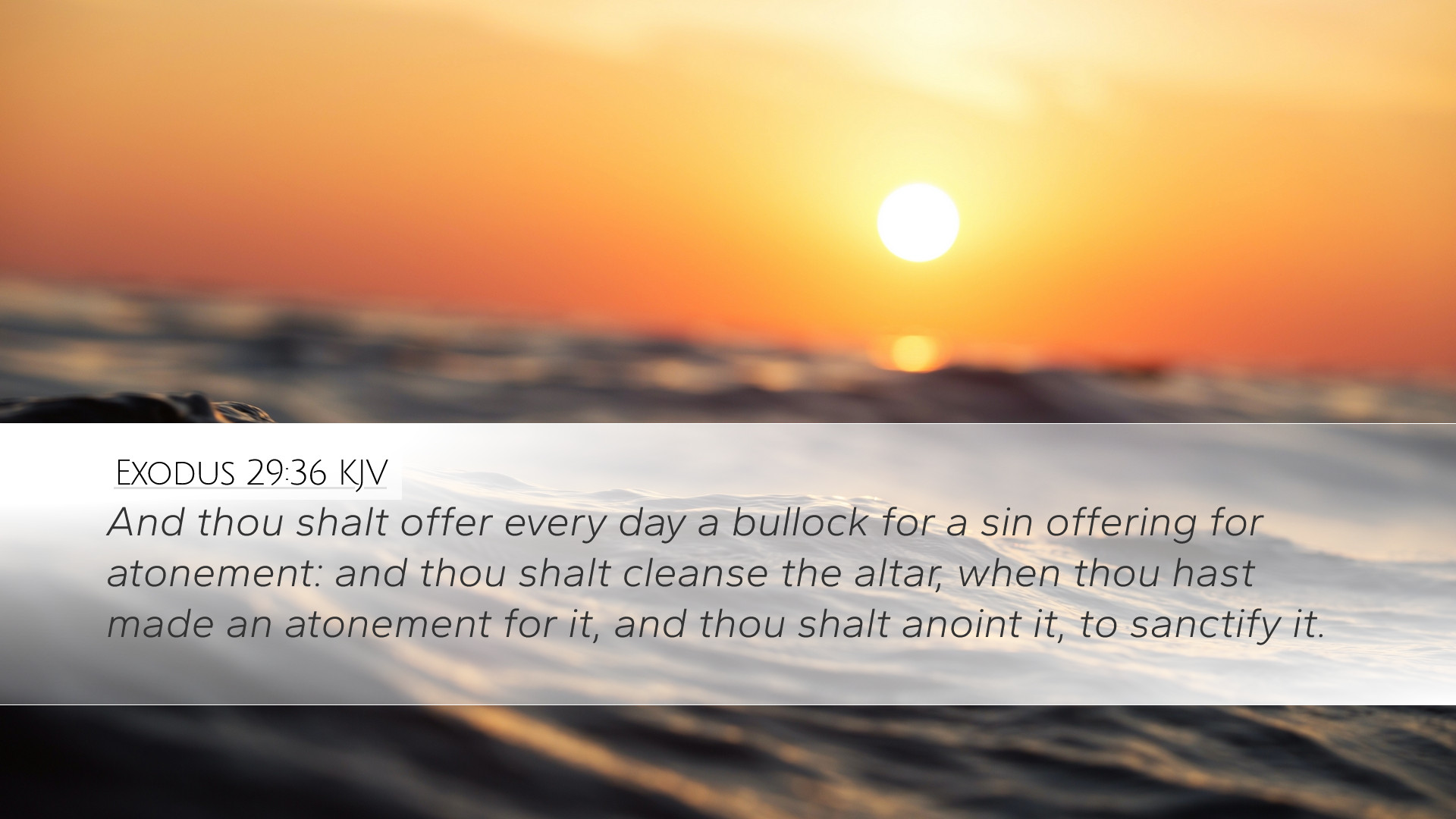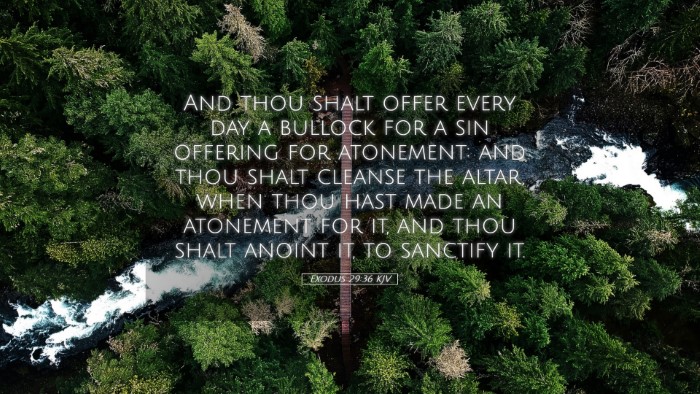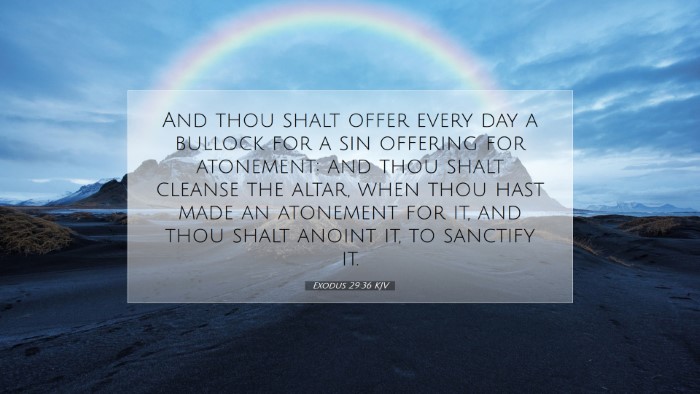Commentary on Exodus 29:36
Verse: Exodus 29:36 - "And thou shalt offer every day a bullock for a sin offering for atonement: and thou shalt cleanse the altar, when thou hast made an atonement for it, and thou shalt anoint it to sanctify it."
General Background
The Book of Exodus details God's covenant with Israel, emphasizing themes of redemption, law, and worship. Exodus 29 specifically outlines the consecration of the priests, establishing sacrificial protocols integral to the Israelite worship system. This particular verse emphasizes the significance of continual atonement and the sanctification of the altar, symbolizing God’s holiness and the need for sin offering.
Theological Implications
Matthew Henry notes that the repeated act of offering a bullock signifies the need for constant reconciliation with God. The term "sin offering" is foundational to understanding the nature of atonement in the Old Testament. It represents mankind's need for salvation and God's provision for that need.
Moreover, Albert Barnes emphasizes that this practice illustrates the seriousness of sin and the necessity of atonement in maintaining a right relationship with God. The altar, as the place of sacrifice, becomes holy through the blood of the offering, signifying the connection between sacrifice and sanctity.
Ritual Significance
Adam Clarke highlights that the daily offering is not just a ritualistic act; it serves a dual purpose of individual and corporate atonement. Each day begins with a reminder of sin and a reaffirmation of God’s grace. This daily regimen contributes to the community's spiritual vitality and communal identity as a nation set apart for God.
Practical Application for Believers
The command for daily offerings can be paralleled with the Christian duty of daily repentance and holiness. As believers today partake in the atoning work of Christ, the reminder is clear: sanctification is not a one-time event but a continual process. Paul exhorts believers to "present your bodies a living sacrifice" (Romans 12:1), reflecting the essence of daily commitment similar to the offerings detailed in Exodus.
Symbolism of the Altar
The altar itself is a significant symbol. It represents a meeting place with God, where the divine and human intersect. Each act of atonement conducted on the altar restores the broken relationship caused by sin. Thus, the act of cleansing the altar is a reminder that worship is not just a formal exercise, but an acknowledgment of God's holiness and humans' need for purification.
Concluding Thoughts
In summary, Exodus 29:36 invites deeper meditation on concepts of sin, atonement, and communion with God. Pastors and theologians are encouraged to reflect on the broader narrative of God's redemptive plan, culminating in Christ, the ultimate sin offering. As we understand the gravity of sin and the grace of atonement, we are drawn into a more profound relationship with the Holy One, who calls us to be holy as He is holy.


